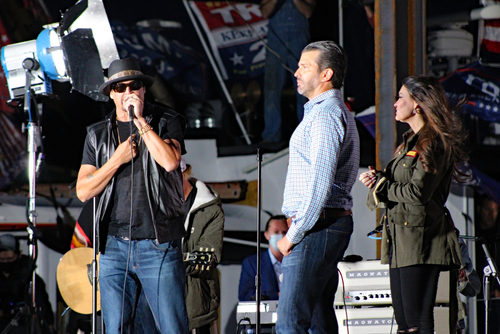Kid Rock’s powerful tribute at the Hondo Rodeo Fest challenges media narratives, stoking debate among conservatives and the broader public.
Kid Rock’s Tribute to Charlie Kirk
In November 2025, Kid Rock performed at the Hondo Rodeo Fest in Phoenix, Arizona. During his performance, he added a heartfelt new verse to Cody Johnson’s hit country song “Til You Can’t,” dedicating it to the late conservative activist Charlie Kirk. Kid Rock’s emotional tribute emphasized faith, patriotism, and unity—values Kirk championed in his lifetime.
Media Criticism and Public Reactions
Kid Rock’s performance and subsequent statements have sparked intense debate. He openly criticized mainstream media, accusing it of inciting the atmosphere that led to Kirk’s untimely death. His accusations align with a broader conservative critique of media bias and its role in societal division.
While many conservative activists have praised Kid Rock for his boldness, critics argue that such rhetoric risks further escalating tensions.
Kid Rock’s new verse has gone viral, amplifying discussions across social media and news outlets about artists’ and the media’s responsibilities in political and cultural dialogue.
Love this Kid Rock tribute to Charlie Kirk at The Hondo Rodeo Fest 🔥🙏🏼
Tomorrow will be exactly 2 months since Charlie was assassinated pic.twitter.com/CmINHWDaw8
— TONY™ (@TONYxTWO) November 10, 2025
Implications for Music and Politics
The tribute at the Hondo Rodeo Fest highlights a growing trend of artists using their platforms to make political statements.
Such actions are not new—musicians like Toby Keith and Bruce Springsteen have historically engaged in political discourse through their music. However, Kid Rock’s tribute is particularly significant given the current polarized climate. It raises questions about the intersection of music, politics, and media responsibility.
As the debate continues, Kid Rock remains steadfast in his message. He insists that his tribute was divinely inspired and necessary to keep Kirk’s message alive. This event underscores the ongoing cultural battle over free speech and the role of public figures in shaping political narratives.

